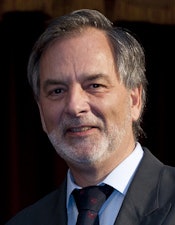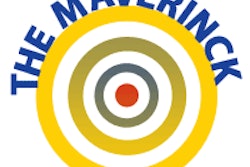
Recently, my bank sent me their new code of conduct, indicating that they would turn ethical from now on. It's one of the fashions of these times to do so. After what my bank still does to me, I know it is lip service, and not legally enforceable.
The European Society of Radiology (ESR) has published a code of ethics.1 What is really meant and described is a code of conduct or code of social responsibility, as my bank sent me. Not only its printing -- light gray letters on a whitish background -- but also the contents are misty. Of course, it is difficult to say to some colleagues that they are misbehaving -- some of them beyond belief. It is also difficult to find a remedy for aberrations that have settled in for generations and become a general disease.
 Dr. Peter Rinck, PhD, is a professor of diagnostic imaging and the president of the Council of the Round Table Foundation (TRTF) and European Magnetic Resonance Forum (EMRF).
Dr. Peter Rinck, PhD, is a professor of diagnostic imaging and the president of the Council of the Round Table Foundation (TRTF) and European Magnetic Resonance Forum (EMRF).
Ethics, or "moral philosophy," is the branch of philosophy that deals with the values of human life in an understandable and systematic manner. It is concerned with the type of conduct or character that is approved or disapproved of -- in terms of right or wrong, good or bad -- and meant to help and guide humans to make morally right choices in their daily activities.
The history of ethics is thousands of years old. Today's "applied ethics" is divided into numerous fields. I doubt that one can develop a self-contained "code of ethics" for a marginal medical discipline such as radiology; it belongs to the ethics of ordinary medicine. One could promote overall ethical reflection and conduct in radiological practice and applied research.
However, the transition from patient-focused radiologist to medical businessman represents a hardly solvable ethical problem. As other medical disciplines, parts of radiology today are run on a commercial basis, as a commodity. Medical ethics should apply, but business behavior patterns outside the ideas in the Hippocratic oath take over.
As for the ESR, it would have been better to ask somebody outside the community to draw up an explanation of what ethics really constitute and what ethical behavior in medical imaging means. There is a vast literature about medical ethics, and even for nearly 40 years a Journal of Medical Ethics, covering all features of the topic.
One could start with the Declaration of Geneva, adopted by the General Assembly of the World Medical Association in 1948 -- a modified form of the Hippocratic oath. The original declaration reads as follows:
I solemnly pledge myself to consecrate my life to the service of humanity. I will give to my teacher the respect and gratitude which is their due; I will practice my profession with conscience and dignity; the health of my patients will be my first consideration; I will respect the secrets which are confided in me; I will maintain by all means in my power the honor and the noble traditions of the medical profession; my colleagues will be my brothers; I will not permit considerations of religion, nationality, race, party politics, or social standing to intervene between my duty and my patient; I will maintain the utmost respect for human life, from the time of conception; even under threat, I will not use my medical knowledge contrary to the laws of humanity. I make these promises solemnly, freely, and upon my honor.
However, the problem is not to write down honeyed lines but to implement the concepts. The ethical values have been lost and it will hurt many people financially and in their egocentric and arrogant treatment of patients and colleagues to get them back.
At a number of roundtable conferences during the last 15 years, we have seen how difficult it is to reach a common understanding of what ethics in medical imaging and medicine at large constitute -- and we could not come to a conclusion on how to reintroduce ethical values and behavior in medicine without punishment of the guilty.2
References
- European Society of Radiology Code of Ethics. www.myesr.org/html/img/pool/ESR_2012_ESRCodeofEthics-5.pdf. March 2013.
- Rinck PA. Some thoughts on contemporary ethics in medicine. Rinckside -- the website.www.rinckside.org/Rinckside Columns/1999 09 Some thoughts on contemporary ethics.htm. September 1999.
Dr. Peter Rinck, PhD, is a professor of diagnostic imaging and the president of the Council of the Round Table Foundation (TRTF) and European Magnetic Resonance Forum (EMRF).
The comments and observations expressed herein do not necessarily reflect the opinions of AuntMinnieEurope.com, nor should they be construed as an endorsement or admonishment of any particular vendor, analyst, industry consultant, or consulting group.



















